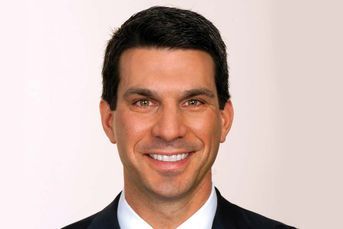The South: New, Old economies fuel a doubling of millionaires
Richard Wagener, a certified financial planner in Columbia, Md., has had a front-row seat to the unanticipated explosion…
Richard Wagener, a certified financial planner in Columbia, Md., has had a front-row seat to the unanticipated explosion of wealth in America.
It is something the Raymond James Financial Services adviser says he could never have begun to imagine a decade ago among even his wealthiest clients.
But even those of modest means have ridden the nation’s amazing technology boom to seven figures in net worth.
Creating wealth
One client who made $60,000 a year suddenly found herself worth $12 million thanks to 120,000 stock options she received through her job at a local technology company. It went public last year.
“She bought a new PT Cruiser, and her goal is to buy a $500,000 home,” Mr. Wagener says. “She’ll have it paid for.”
Her net worth has melted to $5 million now, thanks to the market’s burn. Yet her story captures how the technology revolution has done more than just transform business in the South.
“You have this incredible [phenomenon] of someone starting a technology company and creating something that’s worth billions of dollars,” says Webb Hayes, managing director of the private-client group at Friedman Billings Ramsey & Co. Inc. in Arlington, Va.
“Nowhere in history has there been such an accelerated appreciation of capital,” he says.
Throughout the South, the story is much the same, from the Telecom Corridor in Dallas to the Research Triangle in North Carolina to Washington’s booming suburbs.
Not only tech wizards but many of their employees have become the newest members of an exclusive American club.
Nearly all the states in the region now boast double the number of millionaire households compared to five years ago.
In Texas, the number jumped to 456,000 in 1999, from 211,000 in 1994; in Florida, to 448,000, from 204,000; in North Carolina, to 179,000, from 65,000; and in Virginia, to 189,000, from 92,000, according to figures compiled by Spectrem Group Inc.
And even the areas that have missed out on the tech boom have generated self-made millionaires in unprecedented numbers.
Mikael Jacobs, a certified financial planner and partner at TrustMark Financial Services Inc. in Nashville, Tenn., says a 48-year-old client recently sold his mechanical engineering business to a global company – and reaped a $6 million profit.
Still others simply saved wisely through work-sponsored retirement plans and now are finding themselves sitting on heaps of cash, thanks to the market’s decade-long bull run.
Planners say the newly wealthy cut across all races among both men and women and that the biggest difference is many of them are younger.
“Ten years ago we saw more people inheriting the wealth – it was more of an old-money phenomenon,” says Bill Perkins, president and chief operating officer of the wealth management group at Synovus Financial Corp. in Columbus, Ga.
“Now more wealth is being created. What you’re seeing is 10 years’ worth of a very strong economy paying off for business owners,” he says.
“They’re beginning to now reap the rewards of that.”
CFPs throughout the South say most clients are concerned with protecting their assets, whether for their children through foundations or estate planning or charitable remainder trusts to protect assets for their favorite charities.
The degree of risk in a portfolio seems to correspond with wealth, ranging from a conservative approach – typically stocks and bonds – to private-equity placements and hedge funds.
Mr. Hayes says he sees more clients sharing ownership of private jets; other advisers say more clients are buying vacation homes.
Investors are paying an average of $505,830 for second homes in Hilton Head, S.C., to $216,565 in Savannah, Ga., to $468,000 in Key West, Fla., according to recent sales in those areas.
They also appear to be investing more in their children’s education by sending them to private schools and saving more for college through tax-deferred savings plans.
Even in the deep South where local economies have struggled, entrepreneurial spirit and smart saving have created new millionaires.
“Most of our clients made the money they have instead of inheriting it,” says Phillip Gunter, a Raymond James CFP in Brandon, Miss.
In Louisiana, the economy historically has been driven by oil, gas and shipping. But tourism and conventions are boosting the local economy, creating the need for more services.
“The bulk of our newer clients are professionals – doctors, lawyers, small-business owners,” says Clifford Favrot, a portfolio manager at Fenner Plauche & Williams Investment Management Co. in New Orleans. “They’re creating their own wealth.”
Learn more about reprints and licensing for this article.





